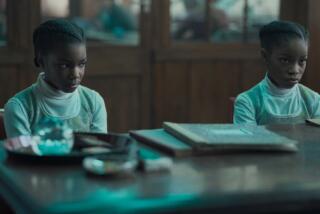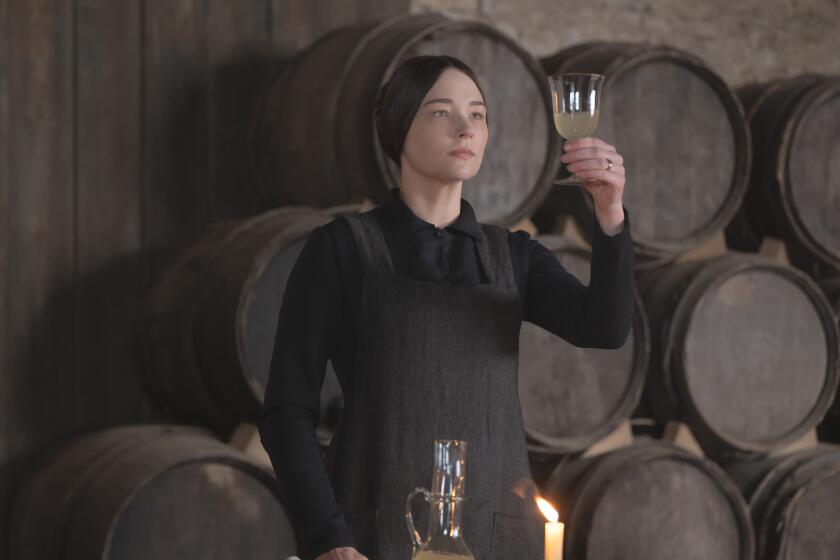Marco Bellocchio, perennial provocateur
Italian filmmaker Marco Bellocchio has been behind the camera for so long -- he made his directorial debut nearly half a century ago -- that it is hard to keep his whole career in mind without breaking it down into smaller, more easily digestible parts.
There is the wunderkind Bellocchio of the mid-1960s, elegantly taking a sledgehammer to Italian society while barely out of short pants; the subtle European mannerist of the ‘80s and ‘90s, adapting occasionally obscure theatrical masterworks for the screen; and the daring political rabble-rouser of the past decade,
Bellocchio’s latest film, “Vincere,” is the most explosive yet of his provocations, documenting the rise to power of future fascist dictator Benito Mussolini from the perspective of the wife he abandoned. Bellocchio’s most striking film in years, “Vincere,” which opens in L.A. theaters on Friday, offers the opportunity to revisit the career of one of the lesser-known icons of the Italian New Wave.
Bellocchio began as a colleague of fellow whiz kid Bernardo Bertolucci, whose “Before the Revolution” (1964) predated Bellocchio’s feature debut, “Fists in the Pocket,” by a year. Bellocchio, like Bertolucci, was turning his back on the austere neorealism of the previous generation of Italian filmmakers, but the preoccupations of his career -- madness and death, politics and family -- make him a legitimate if furtive successor to Roberto Rossellini and Vittorio De Sica. “Fists” is a peculiarly repellent masterwork, a horror film masquerading as a comedy (or is it the other way around?) in which family loyalty and murder are interchangeable.
Disgusted by cynicism and skeptical of rootless idealism, Bellocchio sketches -- repeatedly and with great precision -- a world rife with both. He is, as ever, appalled by the hypocrisy and cruelty of the blinkered idealists he encounters -- be they religious devotees or the political dreamers of “China Is Near” (1967) and, decades later, “Good Morning, Night” (2003) -- but his revulsion has grown tempered, mellowed into a horrified bemusement. For all their surface differences, his films tell the same tale, time and again: one of innocence betrayed by callous experience.
After that initial furious blast of energy, Bellocchio’s profile receded. Like Robert Altman, another director with a lengthy fallow period before a late return to artistic grace, Bellocchio gave theatrical classicism a whirl in the 1980s and 1990s. Films like “Henry IV” (1984) and “The Prince of Homburg” (1997) play like Royal Shakespeare Company productions as staged by Luis Bunuel -- refined but unsettling.
“My Mother’s Smile” (2002), Bellocchio’s return to international attention, ends with a farcical duel, and rightfully so, for the film itself is an attempt -- an intentionally ridiculous one, but an attempt nonetheless -- to parry and thrust with the Catholic Church and its death grip on Italian society. Bellocchio drapes the film in shadows, like any good chronicler of the Vatican would, but the mood is more satirical than dramatic. The film is buoyed by the unglamorous, unshaven face of star Sergio Castellitto, flummoxed by his decidedly unsaintly mother’s being a candidate for beatification.
Bellocchio’s next film, the magnificent “Good Morning, Night,” tracks the Red Brigade radicals who kidnapped former Italian Prime Minister Aldo Moro in 1978. Stately and eventually tragic, the film is austere enough to be a Rossellini picture, but its occasional bursts of visual poetry give “Good Morning” its heft: The kidnappers’ feverish visions of the glorious proletariat on the march, or the image of Moro striding the empty Roman streets, animate this unsettling portrait of murderous idealism and political delusion.
“Vincere’s” link with Italian neorealism may seem tenuous, given that the film shares more with the traditions of opera than of “Bicycle Thieves.” “Vincere” is like Verdi as staged by Sergei Eisenstein -- pulsating blasts of music are interrupted by marching lines of Futurist text dancing across the screen, making pronouncements like “WAR IS THE WORLD’S ONLY HYGIENE.” And yet, “Vincere,” like its predecessors, turns the political into the personal.
Mussolini is present here not as Il Duce but as Benito -- a Socialist journalist and activist during the First World War, husband to the worshipful Ida Dalser (Giovanna Mezzogiorno). As soon as he ascends to power -- in other words, as soon as he becomes Mussolini -- he disappears from the film, glimpsed only in newsreels, and in the barbarism of his brutal henchmen. “Vincere” is less interested in Mussolini anyway than in those he leaves behind: Ida, and her son Benito. The part represents the whole, and the unbearable suffering of Dalser, who is convinced, even decades later, that Mussolini is only testing her loyalty, stands in for the cruelty of Italian fascism toward those it professed to love.
“Vincere” rounds out the trilogy of political villainy, showing that Bellocchio, at age 70, remains fearless when tackling the sacred cows -- or blind spots -- of Italian life. “Vincere” is a melodrama with pretensions to the operatic, but it is also, like all of Bellocchio’s work, a study in human frailty and grace -- a black canvas studded with shafts of brilliant light.
More to Read
Only good movies
Get the Indie Focus newsletter, Mark Olsen's weekly guide to the world of cinema.
You may occasionally receive promotional content from the Los Angeles Times.






